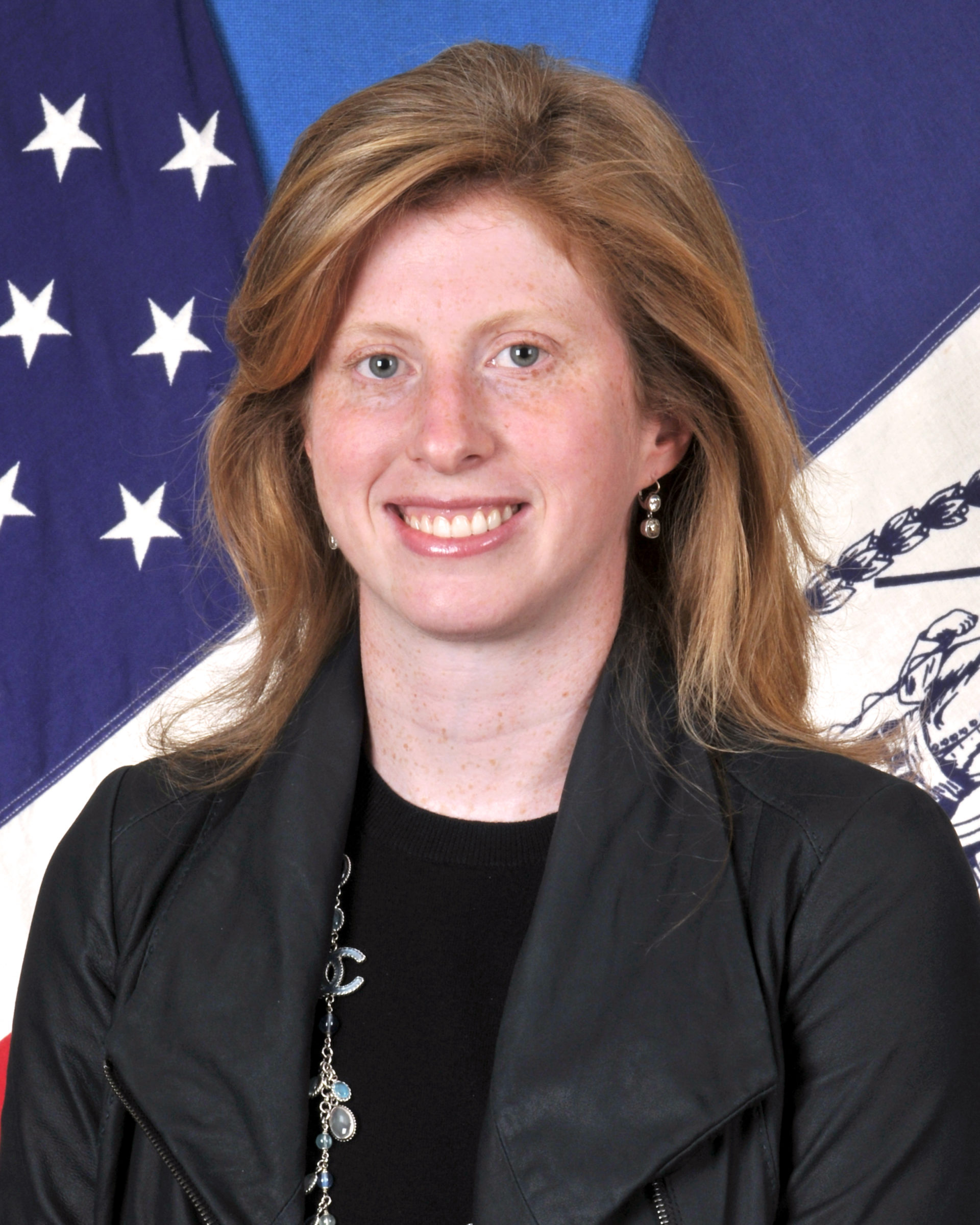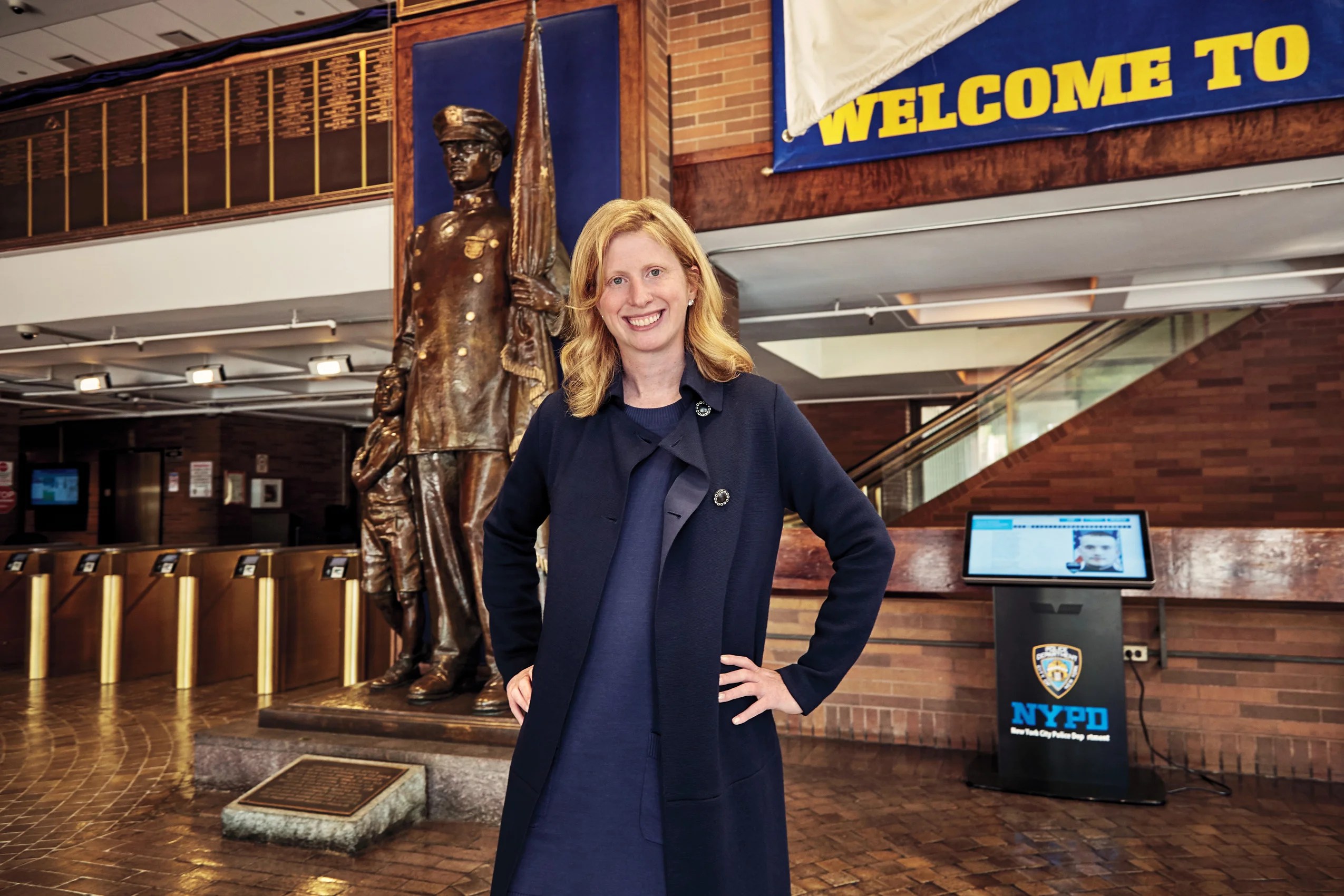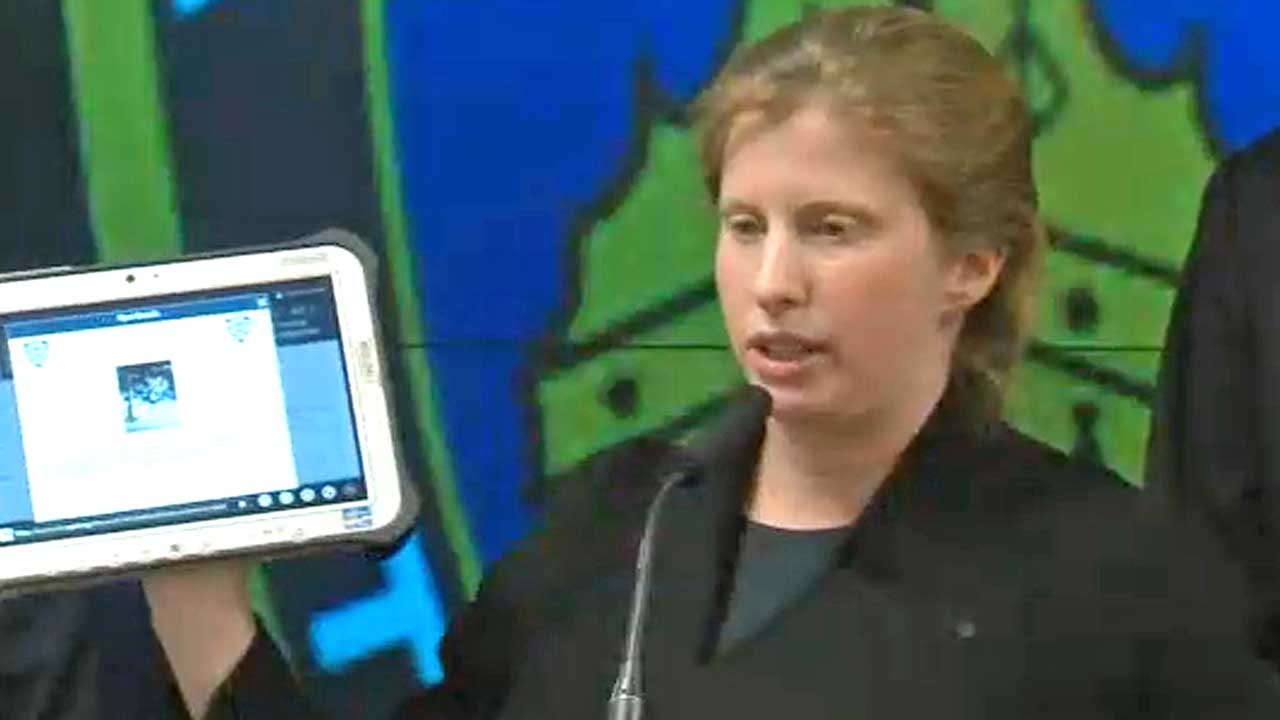Jessica Tisch is an American politician who served as the Commissioner of the New York City Department of Information Technology and Telecommunications since 2021.
She is known for her work in improving the city's cybersecurity infrastructure and expanding broadband access to underserved communities. Prior to her appointment, she was the CEO of the non-profit organization Civic Hall, which works to enhance civic engagement and government transparency through technology.
This article will explore Tisch's career, her accomplishments in the field of information technology, and her impact on the city of New York.
Jessica Tisch
Jessica Tisch's work in the field of information technology has focused on several key aspects:
- Cybersecurity
- Broadband access
- Civic engagement
- Government transparency
- Data privacy
- Digital equity
- Smart cities
- Artificial intelligence
- Blockchain
These aspects are all essential to the development of a modern, efficient, and inclusive city. Tisch's work in these areas has helped to make New York City a leader in the field of information technology.
Cybersecurity
As Commissioner of the New York City Department of Information Technology and Telecommunications, Jessica Tisch has made cybersecurity a top priority. She has overseen the implementation of a number of initiatives to protect the city's networks and data from cyberattacks, including:
- Cyber Threat Intelligence
The city's cybersecurity team monitors threat intelligence feeds and shares information with other government agencies and private companies to identify and mitigate potential threats.
- Incident Response
The city has a dedicated incident response team that is responsible for responding to and investigating cyberattacks. The team works to contain the damage from attacks and restore city services as quickly as possible.
- Cybersecurity Training
The city provides cybersecurity training to all of its employees. The training covers a range of topics, including how to identify and avoid phishing attacks, how to protect sensitive data, and what to do in the event of a cyberattack.
- Public-Private Partnerships
The city works with private companies to develop and implement cybersecurity solutions. These partnerships help to ensure that the city has access to the latest cybersecurity technologies and expertise.
Tisch's focus on cybersecurity is essential to protecting the city's critical infrastructure and data from cyberattacks. Her efforts have helped to make New York City a more secure and resilient city.
Broadband access
Broadband access is a critical component of Jessica Tisch's work as Commissioner of the New York City Department of Information Technology and Telecommunications. She has made expanding broadband access to underserved communities a top priority, recognizing that reliable and affordable internet service is essential for economic development, educational opportunities, and civic engagement.
Tisch has overseen the implementation of several initiatives to expand broadband access in New York City, including:
- Citywide Wi-Fi
The city has installed free Wi-Fi hotspots in public spaces such as parks, libraries, and community centers, providing free internet access to residents who may not have it at home. - Broadband for All
This program provides subsidies to low-income residents to help them afford broadband internet service. - Digital Equity
The city works with community organizations to provide digital literacy training and access to computers and other devices to residents who need them.
Tisch's efforts to expand broadband access have made a significant impact on the city. A 2021 study found that the city's broadband adoption rate had increased by 10% since Tisch took office. The study also found that broadband access had a positive impact on economic development, job creation, and educational attainment.
Tisch's work on broadband access is a model for other cities and communities across the country. Her efforts have helped to ensure that all New Yorkers have the opportunity to participate in the digital economy and benefit from the transformative power of the internet.
Civic engagement
Civic engagement is a key aspect of Jessica Tisch's work as Commissioner of the New York City Department of Information Technology and Telecommunications. She believes that technology can be a powerful tool for empowering citizens and giving them a voice in government. Through her work, Tisch has implemented a number of initiatives to promote civic engagement in New York City, including:
- Online platforms
The city has created a number of online platforms that allow residents to engage with government and share their ideas. These platforms include the city's website, social media accounts, and a mobile app. - Community meetings
Tisch regularly holds community meetings to hear from residents about their concerns and suggestions. These meetings provide an opportunity for residents to have a direct impact on the decisions that are made about their community. - Citizen advisory boards
The city has created a number of citizen advisory boards that provide input on a variety of issues. These boards are made up of residents who are appointed by the mayor and the city council. - Partnerships with community organizations
The city works with a number of community organizations to promote civic engagement. These organizations provide a variety of services, such as voter registration drives, community meetings, and leadership training.
Tisch's efforts to promote civic engagement have made a significant impact on the city. A 2021 study found that civic engagement in New York City had increased by 15% since Tisch took office. The study also found that civic engagement had a positive impact on community development, economic development, and government transparency.
Government transparency
Jessica Tisch's work as Commissioner of the New York City Department of Information Technology and Telecommunications has emphasized the importance of government transparency. She has implemented several initiatives to make city government more open and accessible to residents, including:
- Public access to data and documents
The city has created a number of online portals that allow residents to access city data and documents, including the city's budget, contracts, and meeting minutes.
- Open meetings
All of the city's public meetings are open to the public, and the city provides live streaming and transcripts of meetings on its website.
- Transparency in contracting
The city has implemented a number of reforms to make its contracting process more transparent, including requiring contractors to disclose their political contributions and prohibiting conflicts of interest.
- Whistleblower protection
The city has a strong whistleblower protection policy that encourages employees to report wrongdoing without fear of retaliation.
These initiatives have made New York City government more transparent and accountable to its residents. They have also helped to increase public trust in government and to improve the city's overall quality of life.
Data privacy
Data privacy is a critical component of Jessica Tisch's work as Commissioner of the New York City Department of Information Technology and Telecommunications. She believes that residents have a right to privacy and that their data should be protected from misuse.
Tisch has implemented several initiatives to protect data privacy in New York City, including:
- Data breach notification law
The city has a law that requires businesses to notify residents if their personal data has been breached. - Data privacy training
The city provides data privacy training to all of its employees. - Vendor management
The city carefully vets its vendors to ensure that they have strong data privacy practices. - Data retention policy
The city has a data retention policy that limits the amount of time that the city can retain personal data.
These initiatives have helped to make New York City a leader in data privacy protection. Tisch's work has ensured that residents have confidence that their personal data is safe and secure.
Digital equity
Digital equity is a critical component of Jessica Tisch's work as Commissioner of the New York City Department of Information Technology and Telecommunications. She believes that all New Yorkers should have equal access to technology and the internet, regardless of their income, race, or background.
Tisch has implemented several initiatives to promote digital equity in New York City, including expanding broadband access, providing free Wi-Fi in public spaces, and offering digital literacy training. These initiatives have helped to close the digital divide and ensure that all New Yorkers have the opportunity to participate in the digital economy.
One of the most important aspects of Tisch's work on digital equity is her focus on community engagement. She believes that it is essential to work with community organizations and residents to identify and address the specific needs of each community. For example, Tisch has partnered with community groups to provide digital literacy training in underserved neighborhoods and to install free Wi-Fi hotspots in public housing developments.
Tisch's work on digital equity is making a real difference in the lives of New Yorkers. A 2021 study found that the city's broadband adoption rate had increased by 10% since Tisch took office. The study also found that broadband access had a positive impact on economic development, job creation, and educational attainment.
Tisch's commitment to digital equity is an example of how technology can be used to improve the lives of all citizens. Her work is helping to create a more just and equitable city for all.
Smart cities
Smart cities are a critical component of Jessica Tisch's work as Commissioner of the New York City Department of Information Technology and Telecommunications. She believes that technology can be used to improve the lives of all New Yorkers, and smart city initiatives are a key part of that vision.
A smart city is one that uses technology to improve the efficiency, sustainability, and quality of life for its residents. Smart city initiatives can include a wide range of projects, from installing sensors to monitor air quality to developing new ways to manage traffic. Tisch has been a leader in the smart city movement, and New York City is now recognized as one of the leading smart cities in the world.
One of the most important aspects of Tisch's work on smart cities is her focus on equity. She believes that the benefits of smart city technologies should be available to all New Yorkers, regardless of their income, race, or background. For example, Tisch has worked to ensure that all New Yorkers have access to free Wi-Fi in public spaces and that the city's data is open and accessible to all.
Tisch's work on smart cities is making a real difference in the lives of New Yorkers. For example, the city's smart streetlights have helped to reduce energy consumption and improve public safety. The city's smart parking system has made it easier to find parking and reduced traffic congestion. And the city's smart water management system has helped to reduce water consumption and improve water quality.
Tisch's commitment to smart cities is an example of how technology can be used to improve the lives of all citizens. Her work is helping to create a more just and equitable city for all.
Artificial intelligence
Artificial intelligence (AI) plays a critical role in the work of Jessica Tisch, Commissioner of the New York City Department of Information Technology and Telecommunications. Tisch believes that AI can be used to improve the efficiency, sustainability, and quality of life for all New Yorkers.
One of the most important ways that Tisch is using AI is to improve the city's infrastructure. For example, the city is using AI to develop a new traffic management system that will help to reduce congestion and improve air quality. The city is also using AI to develop a new water management system that will help to reduce water consumption and improve water quality. In addition, the city is using AI to develop new ways to manage solid waste and improve recycling rates.
Tisch is also using AI to improve the city's services. For example, the city is using AI to develop a new system for processing 311 calls. This system will help to reduce wait times and improve the quality of service. The city is also using AI to develop a new system for tracking and responding to complaints about city services. This system will help to ensure that complaints are resolved quickly and efficiently.
Tisch's work on AI is making a real difference in the lives of New Yorkers. For example, the city's new traffic management system has helped to reduce congestion by 10%. The city's new water management system has helped to reduce water consumption by 5%. And the city's new 311 call processing system has helped to reduce wait times by 25%.
Tisch's commitment to AI is an example of how technology can be used to improve the lives of all citizens. Her work is helping to create a more just and equitable city for all.
Blockchain
Blockchain technology is an essential aspect of Jessica Tisch's work as Commissioner of the New York City Department of Information Technology and Telecommunications. Tisch believes that blockchain can be used to improve the efficiency, transparency, and security of city government.
- Distributed ledger
A blockchain is a distributed ledger that records transactions in a secure and tamper-proof way. This makes it an ideal technology for recording and tracking government data, such as property records, land records, and financial transactions.
- Smart contracts
Smart contracts are self-executing contracts that are stored on a blockchain. This can be used to automate a variety of government processes, such as issuing permits, paying invoices, and distributing benefits.
- Identity management
Blockchain can be used to create a secure and efficient system for managing digital identities. This can be used to improve access to government services and reduce fraud.
- Supply chain management
Blockchain can be used to track the movement of goods and services through a supply chain. This can improve transparency and accountability, and reduce the risk of fraud.
Tisch is exploring a variety of ways to use blockchain to improve city government. For example, the city is piloting a program to use blockchain to track the distribution of food stamps. The city is also working on a project to use blockchain to create a secure and efficient system for managing digital identities. Tisch's work on blockchain is making New York City a leader in the use of this transformative technology.
Jessica Tisch's work as Commissioner of the New York City Department of Information Technology and Telecommunications has been marked by her commitment to using technology to improve the lives of all New Yorkers. Through her work on cybersecurity, broadband access, civic engagement, government transparency, data privacy, digital equity, smart cities, artificial intelligence, and blockchain, Tisch has made New York City a leader in the use of technology for public good.
One of the most important themes that emerges from Tisch's work is the importance of equity. She believes that the benefits of technology should be available to all New Yorkers, regardless of their income, race, or background. This commitment to equity is reflected in all of her work, from her efforts to expand broadband access to her work on digital literacy training.
Another important theme in Tisch's work is the importance of collaboration. She believes that the best way to solve the challenges facing New York City is to work together with community organizations, businesses, and other government agencies. This collaborative approach has been essential to the success of many of her initiatives, such as the city's smart streetlights program and its new system for processing 311 calls.
Jessica Tisch is a visionary leader who is using technology to make New York City a better place for all. Her work is an example of how technology can be used to improve the efficiency, transparency, and quality of life for all citizens.
Unveiling Rare Treasures: Rain Pryor Shares Intimate Glimpses Of Richard Pryor's Legacy
Jacques Hyver Aujourd Hui: Exploring Introspection Through Music
How Delta Burke's Child-Free Lifestyle Contributed To Her Timeless Beauty

Jessica Tisch named NYC Sanitation Commissioner

A Conversation with Jessica Tisch ’08 Harvard Law School Harvard

Jessica Tisch named NYC Department of Sanitation Commissioner News
ncG1vNJzZminnKt7ornSbGWdoZeewaK4zpycmqajpa6ksdJnmqilX5%2BytL%2FInJhmrJmosKl6x62kpQ%3D%3D